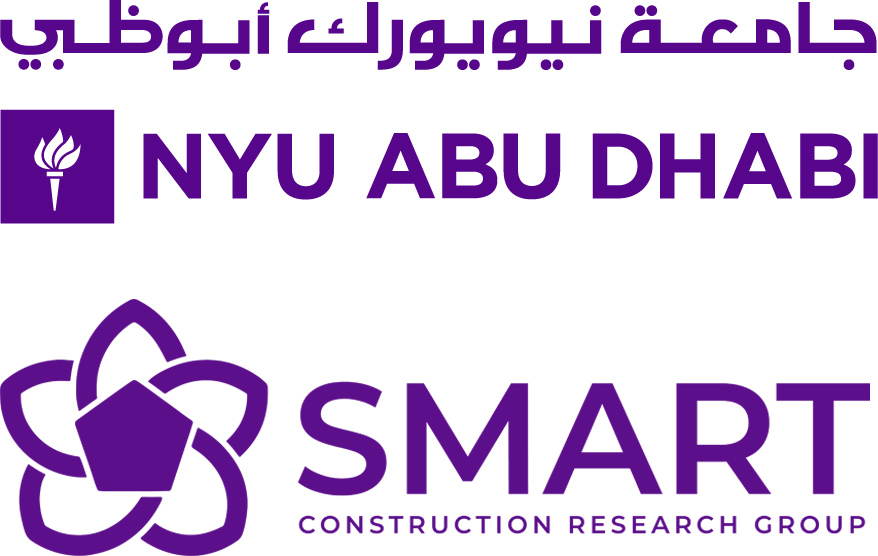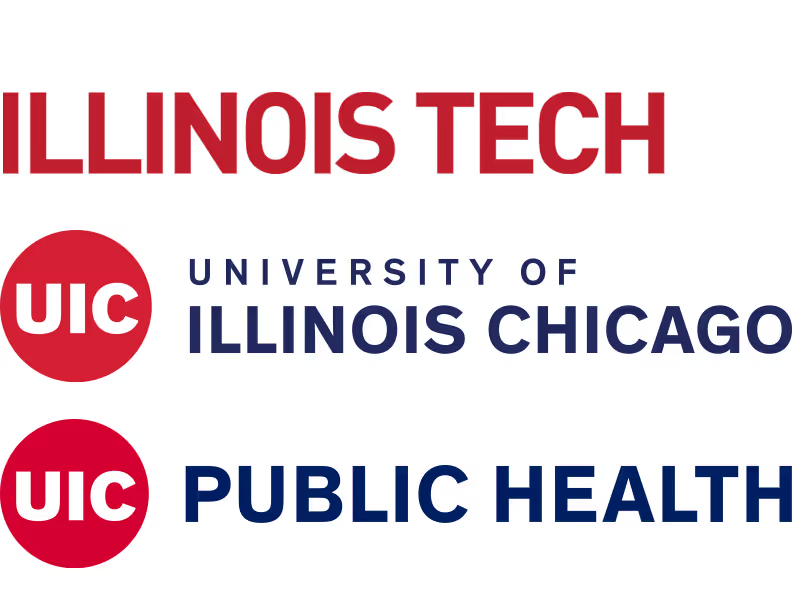
Researchers from the S.M.A.R.T. Construction Group at NYU Abu Dhabi are creating a digital twin platform to monitor and optimize indoor environments. Using IoT sensors (including ATMOCUBE), forecasting models, and 3D visualization, the system tracks air quality, predicts IEQ changes, and supports real-time actions like ventilation or lighting adjustments to make buildings healthier and smarter.

AmIAire, a citizen-science and action-research project led by the University of Deusto, Fundación Ibercivis, and Scicling Initiative, engaged over 3,000 students from more than 130 schools in Spain to measure outdoor PM10. The research involved DIY Vaseline-coated paper sensors, custom visualization software, and reference monitors.

The research team from the Global Cardiovascular Health Program at the University of Washington is leading a study in South Africa and Uganda on cardiac fibrosis and steatosis in women with and without HIV. Using Atmotube PRO, participants’ PM2.5 exposure is tracked and analyzed alongside imaging techniques to assess heart health.

Researchers from the University of Illinois Chicago and the Illinois Institute of Technology, in collaboration with the Illinois Department of Public Health, are studying the impact of HEPA air purifiers on classroom air quality in urban, suburban, and rural schools. This project, funded by SHIELD Illinois, utilizes Atmocube monitors to measure indoor air quality, aiming to create healthier and cleaner environments for students and teachers.

A research project at University College Cork, undertaken as part of the DOROTHY postdoctoral research program, aims to create healthy and sustainable indoor climates in classrooms. This initiative seeks to improve indoor air quality in classrooms across Ireland and Denmark, ensuring healthier learning environments for children. The research team is utilizing Atmocube IAQ monitors to evaluate the TAIL indoor environmental index.

The AVSI Foundation, in partnership with Berkeley Air Monitoring Group and Eni, is launching a research project in Sofala Province, Mozambique, to model the health benefits of Improved Cookstoves (ICS). The study aims to quantify the reduction in PM2.5 exposure in households before and after ICS's introduction and assess health risk reductions using the DALY methodology.

The Children's Hospital of Philadelphia, in partnership with the Hospital of the University of Pennsylvania, is conducting a study on the air pollution exposures preterm infants face after NICU discharge. Atmotube PRO will help caregivers and researchers better understand local air quality and potential health impacts.

Barcelona Institute for Global Health - ISGLOBAL is studying the effects of children’s daily commutes on their health, focusing on environmental exposures and interventions to improve urban environments. In Barcelona, Spain, researchers use Atmotube PRO carried by students to collect GPS-linked air quality data. Additional data from questionnaires, NO2 diffusion tubes, and interviews help evaluate the intervention’s effectiveness.

Atmotube PRO devices are used by "I Borghi più belli d'Italia" in the GREENGAGE initiative, funded by Horizon Europe. Its goal is to engage citizens in shaping climate policies through green initiatives. Citizen Observatories focus on mobility, air quality, and healthy living, facilitating active involvement in addressing environmental issues. The collected data influences urban governance and affects policy assessment at the city level.

In Abidjan, Ivory Coast, Atmotube PRO air quality monitors are being used in a World Bank-funded study conducted by MindEarth as part of an international consortium that includes UrbaPlan, Open Street Map Côte d’Ivoire, and Sepia Conseils. The study focuses on heat stress and air pollution, aiming to enhance data collection for understanding environmental threats and developing solutions through innovative urban planning. Atmotube PRO monitors and the MindEarth App play key roles in collecting temperature and air quality data.

The UPSURGE project, funded by Horizon 2020, focuses on enhancing air quality and climate neutrality in urban areas through innovative Nature-Based Solutions (NBS). Through a network of 50 wearable air pollution sensors in each of five European cities — Belfast, Breda, Budapest, Maribor, and Katowice — this initiative serves as a model for cities seeking to mitigate air pollution and transition towards regenerative urban development.

In partnership with Design Nature, Stantec, and the University of Reading, Reading Borough Council, UK, launches the CALM:ER program – Clean Air Living Matters: Exploring Reading.This initiative involves school activities for primary and secondary students and sensor deployment to enhance air quality awareness among students and parents. Aiming to foster community-wide behavioral changes, the project addresses concerns regarding wood burning and particulate matter. The program will be running until spring 2025.
.png)
A research team from Georgia State University is using Atmotube PRO to explore the complex link between air pollution and children's health in Atlanta. Focusing on 3-4 year olds, they aim to understand how pollutants affect their bodies by examining changes in their salivary metabolome. Sampling occurs over 4-5 weeks in daycare centers across seasons, measuring PM2.5, NOx, O3, ultrafine particulates, and black carbon indoors, outdoors, and during transit.

Howard University researchers from the Department of Electrical Engineering and Computer Science use Atmocube to measure and compare indoor air in low-income and high-income households in Washington DC and Baltimore, to understand the relationships between socioeconomic factors and indoor environmental exposures.

Columbia University, Addis Ababa University, Makerere University, and the University of Nairobi are conducting a personal exposure assessment in the context of a study that links lung function to air pollution. The research has been taking place in Addis Ababa, Kampala, and Nairobi from 2022 to 2027.

A research group from San Diego State University, partnering with dfusion, has developed the Personal Exposure Toolkit (PET) to engage community members as Citizen Scientists. The PET enables anyone to measure real-time air pollution exposure and share findings with peers, policymakers, and other school and community stakeholders. The PET consists of the PET Recorder mobile app, a web portal, and the Atmotube PRO.

The Brainteaser Project, funded by the European Commission through the Horizon2020 program, is utilizing Atmotube PRO to research amyotrophic lateral sclerosis and multiple sclerosis. The project involves multiple research groups analyzing clinical, environmental, and behavioral data using AI modeling to improve patient care. Partners include Instituto de Medicina Molecular, Università degli Studi di Torino, and others.

The USC's Center for Economic and Social Research is using Atmotube PRO for research under the Understanding America Study (UAS). The study examines factors that prompt households to adopt air quality sensors and track health and cognition in a longitudinal study. A pilot study in 2022 validated the technology's compliance. In 2023, 500+ people of all ages will use Atmotubes and complete monthly surveys.

Atmo Hauts-de-France and its Belgian partners (ISSeP, VMM, and AwAC) used Atmotube PRO in the project called
TransfAIR, co-financed by the European Interreg France-Wallonie-Vlaanderen programme. The project aims to create tools for managing air quality across borders in Flanders, Hauts-de-France, and Wallonia. Atmotube PRO was used for citizens’ air quality monitoring education during the “AERO Adventure” game.

In 2020, the Clean Air Action Group (CAAG) conducted the “Citizen Science to Improve Air Quality” project where parents measured air quality on playgrounds for a year.
.png)
The SJEQ-D project, funded by the National Science Foundation, works with North Denver's Globeville, Elyria-Swansea, Cole, and Clayton communities. Researchers from Colorado University (CU) Boulder and CU Denver are assessing construction disruptions' impact on the well-being, pollution, and mobility of community members who will carry Atmotube PRO air monitors for up to four months to monitor their PM2.5 exposure.

A project Breathe Southern California is researching the impact of air quality on lung health through monitoring asthma sufferers' health in Pacoima, CA. The project is funded by the California Air Resources Board and is offering Atmotube air quality sensors and enabled inhalers to 50 participants. The study will overlay inhaler use with real-time air quality data to pinpoint potential exacerbation "hotspots".

The University of Calgary is investigating the effects of residential proximity to fracking on child health. The study uses Atmotube to measure children's exposure to air pollutants over a week, while also assessing their cognitive, academic, and social-emotional functioning. The research aims to provide insights into the health risks associated with fracking and inform policies that protect children's health.

GREEN-MPNA and UCI used Atmotube PRO to monitor air quality in Santa Ana, CA. The project was funded by the California Air Resources Board and aimed to increase awareness of environmental justice concerns in the area, determine how socioeconomic factors are connected to air quality, and determine if air pollution was primarily caused by industrial sources or traffic. Check the full report

An undergraduate Environmental Studies class at Lewis & Clark College is using Atmotube PROs to provide a hands-on experience for students to practice research design, implementation, analysis, and communication. Using air quality observations and interview techniques, teams of students will craft a research question, implement their research design, and publish their results via an ArcGIS Storymap.

Atmotube was part of a study by Desert Research Institute and partners to enhance fire detection using affordable air quality sensors. The research tested Atmotube's response to combustion products from spacecraft materials. The devices performed well in all fire emission tests, showing high correlation with PID measurements. Check the full report.
Note: The current model of Atmotube doesn’t have a CO sensor.

University du Québec à Chicoutimi is conducting a study on the environmental conditions of police officers who conduct bicycle patrols as part of a broader analysis of the effect work-related conditions have on officers' health and safety. Atmotube PRO will be used to gather information on their exposure to external factors like temperature, atmospheric conditions, etc., which will be linked with physiological variables.

UCI Health used Atmotube PROs to monitor personal PM2.5 and VOC exposure during COVID-19 re-opening and California wildfires. The study evaluated exposure differences based on volunteers' housing activities i.e., smoking, cooking, cleaning, indoor ventilation system change, etc. Sensors captured spatial and temporal changes for each individual, as well as extreme elevation in both PM2.5 and VOC levels during wildfires.





%201.svg)
